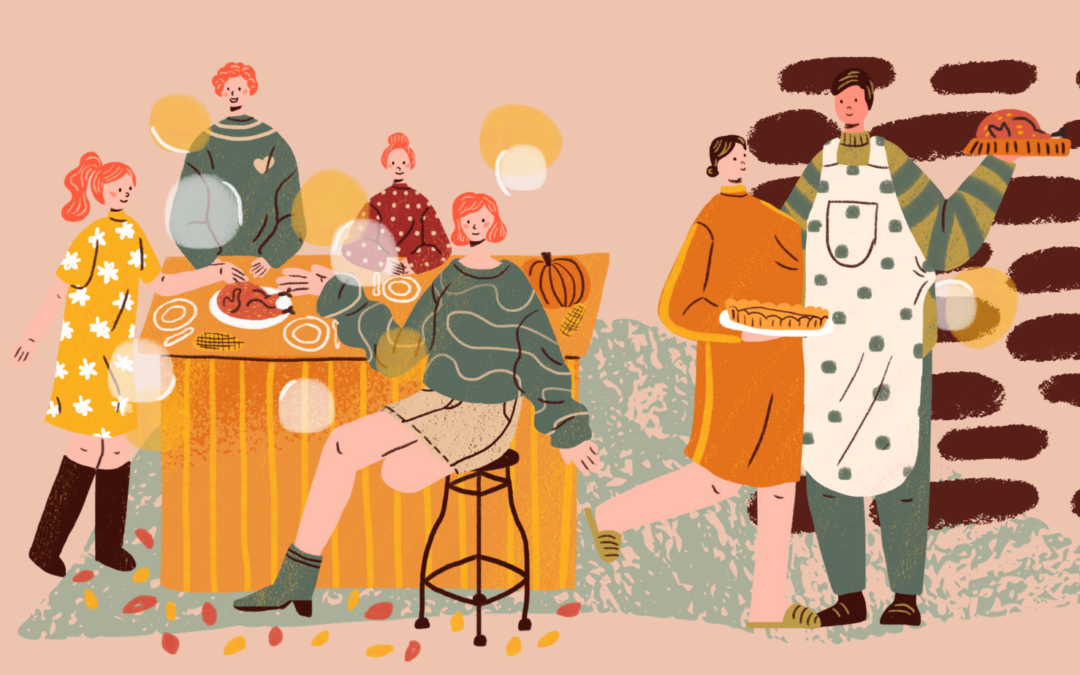The holiday season is often associated with joy, celebration, and indulgence. However, for individuals struggling with eating disorders, this time of year can bring about increased urges, stress, anxiety, and triggers. Coping with eating disorders during the holidays requires a unique approach that focuses on self-care, support, and seeking professional help, such as eating disorder therapy and an eating disorder specialized dietician. In this blog post, we will explore some practical strategies and tips to navigate this challenging period.
Prioritize Self-Care
During the holidays, it’s important to prioritize self-care. This means listening to your body’s needs, following a balanced meal plan, and engaging in activities that promote well-being. Steer clear of restrictive diets or compensatory behaviors, and instead focus on nourishing yourself both physically and emotionally.
Establish Boundaries
Setting boundaries is crucial for maintaining your mental and emotional well-being. If certain family gatherings or events trigger negative emotions or thoughts related to your eating disorder, consider opting out or limiting your participation. Communicate your needs clearly and assertively to your loved ones, ensuring they understand the importance of your recovery journey.

Build a Support Network
Surround yourself with a strong support network that understands and respects your struggles. Reach out to friends, family members, or support groups who can provide encouragement and guidance during this challenging time. Additionally, consider attending eating disorder therapy sessions to receive professional help tailored to your specific needs.
Prepare for Triggers
The holiday season can be filled with trigger foods, stressful social situations, and unrealistic body ideals, leading to urges to restrict or binge or both. Be prepared to encounter these triggers and develop coping mechanisms to navigate them effectively. Practice mindfulness techniques, such as deep breathing or grounding exercises, to stay present and manage any emotional distress that may arise.
Focus on Non-Food Related Activities
Instead of dwelling solely on food-centered events, shift your focus towards non-food related activities. Engage in hobbies you enjoy, spend time with loved ones, or participate in holiday traditions that bring you joy. By redirecting your attention away from food, you can reduce the pressure and anxiety associated with eating disorder triggers.

Communicate Your Needs
Openly communicate your needs and concerns to your loved ones. Expressing your struggles and requesting support from those around you can create a more understanding and inclusive environment. Educate your family and friends about eating disorders, emphasizing the importance of empathy and sensitivity during this time.
Seek Professional Help with New Roads Behavioral Health
Eating disorder therapy is an invaluable resource for individuals struggling with eating disorders, especially during the holidays. New Road’s clinicians are trained in three eating disorder treatments. A trained therapist at New Roads Behavioral Health can guide you through the complexities of your disorder, helping you develop coping strategies, address underlying issues, and build a healthier relationship with food. Consider reaching out to professionals who specialize in eating disorder therapy to assist you in your recovery journey.
In conclusion, coping with eating disorders during the holidays requires a proactive and holistic approach. Prioritizing self-care, setting boundaries, building a support network, and seeking professional help through eating disorder therapy are vital steps towards maintaining your well-being. Remember, recovery is possible, and by implementing these strategies, you can navigate the holiday season with greater resilience and empowerment.

